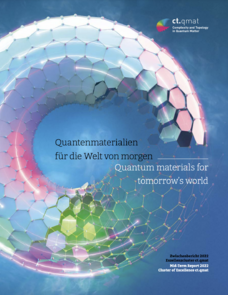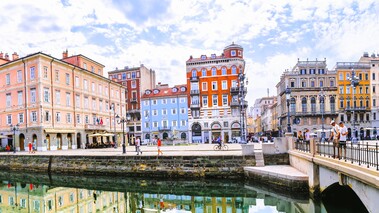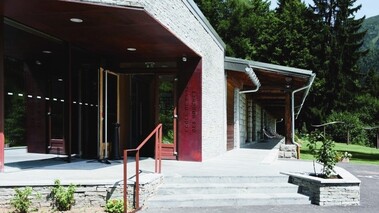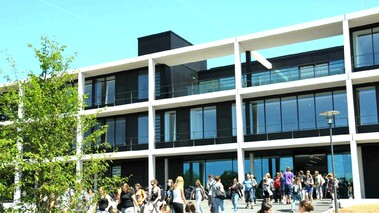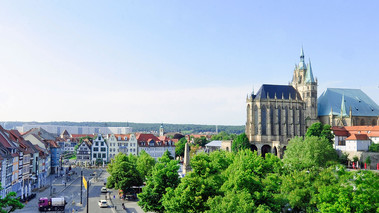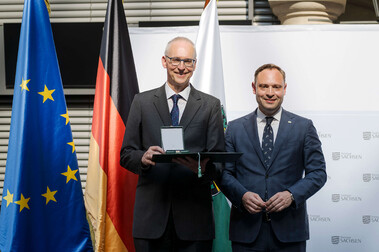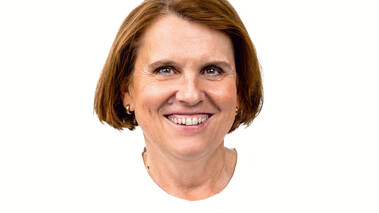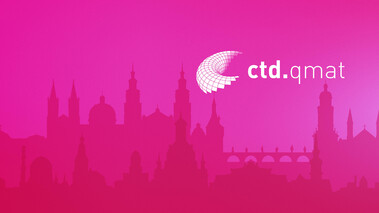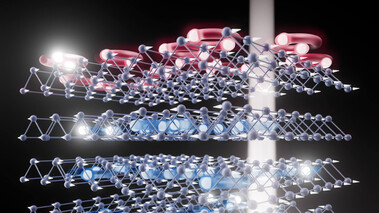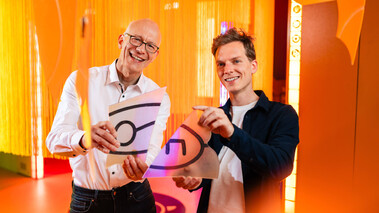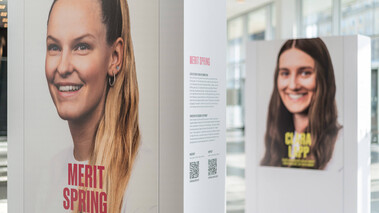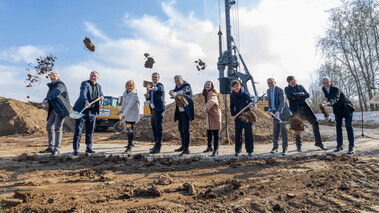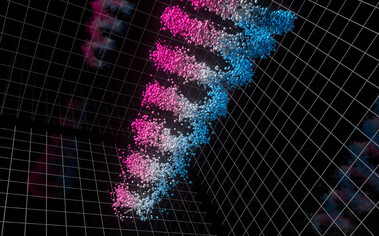Welcome to ct.qmat
We are the Cluster of Excellence ct.qmat – Complexity and Topology in Quantum Matter. Established in 2019, the Würzburg-Dresden Cluster ct.qmat is a leading international center for research on topological and complex quantum matter. Our aim is to develop a deep understanding of quantum phenomena in general and to identify materials in which those phenomena are observed in the laboratory. This is supported by educating and attracting top-level students and scientists as well as by supplementing infrastructure in both Würzburg and Dresden.
ct.qmat in a Nutshell
ct.qmat unites two of the leading research hubs in condensed matter physics: Dresden and Würzburg.
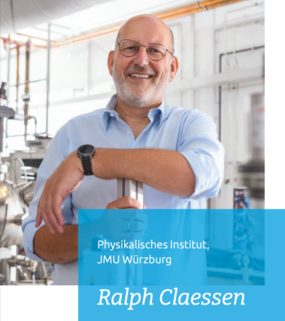
Powerful Network for Cutting-Edge Research. ct.qmat’s Würzburg spokesperson Ralph Claessen highlights its remarkable achievements:
"At the heart of our research are complexity and topology, two exciting key areas in modern condensed matter physics. We’ve developed quantum materials with unprecedented features, such as manganese bismuth telluride. Our team has made significant strides in superconductivity, topological insulators, and topological lasers. From two universities and our external partners, a network has grown that’s truly greater than the sum of its parts."
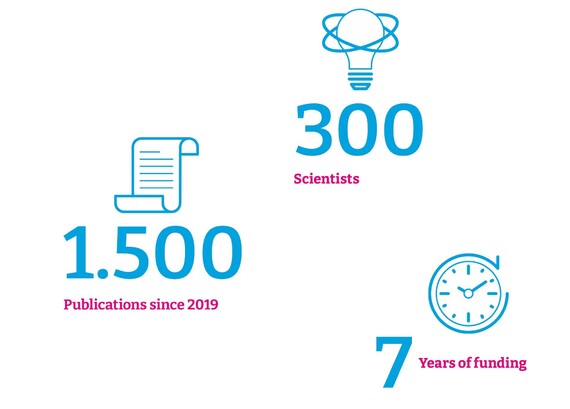
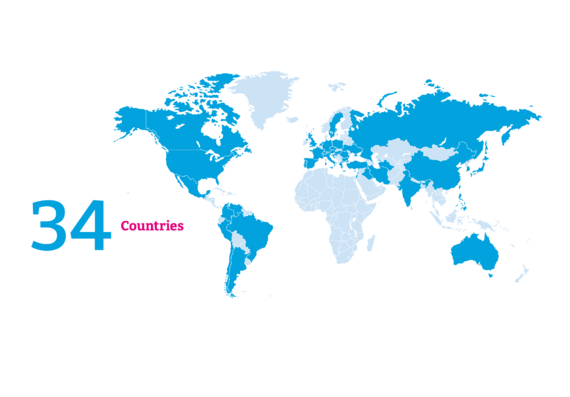
Continuing the Quantum Revolution. ct.qmat is leading the way, says its Dresden spokesperson Matthias Vojta:
"We’re leading the field with our discoveries. Developing a wide variety of materials using state-of-the-art synthesis techniques, we’ve firmly established Würzburg and Dresden as Germany’s premier centers of topological materials physics. We’re driven by curiosity and a commitment to systematically understanding topological physics. We also reach out to the public, including by launching an escape room for kids in 2024. That’s something we’re really passionate about!"
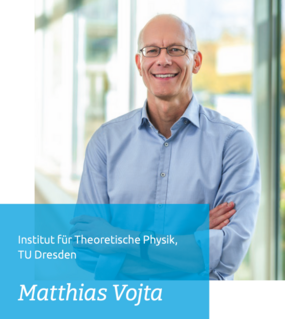
-
![Colourbox-Triest-16zu9aaa]()
18 Aug – 05 Sept 2025
ICTP School on Quantum Dynamics of Matter, Light, and Information
more
-
![Leshouches-16zu9-Bearbeitet2]()
15 – 26 Sept 2025
SUCCESS-2025: School on UV and X-ray spectroscopies of correlated electron systems
more
-
![Z6breitbild-Editiert3]()
15 – 19 Sept 2025
Summer School on Correlated Quantum Materials & Solid State Quantum Systems
more
-
![Colourbox10160965-16zu9a]()
15 – 19 Sept 2025
Korrelationstage 2025: International workshop at the MPI PKS
more
-
![3713-Dom-Und-Severi-Barbara-Neumann-1920x1080]()
24 – 26 Sept 2025
Cluster Retreat 2025 (Erfurt)
more
-
![Lec-Houches-View-2-Cctiiamonto-Scaled]()
28 Sept – 03 Oct 2025
FERMI SCES 2025: WE Heraeus school on new phases, superconductivity and emerging electronic properties of quantum materials
more
-
![Sa-Chsischerverdienstorden-Karlleo-Fotopawelsosnowski]()
18 Jun 2025
Karl Leo Awarded Order of Merit of the Free State of Saxony
more
-
![Claudiafelser-Rethinking-Presse2-1920x1080]()
12 Jun 2025
08:00 pmClaudia Felser Receives For Women in Science Award from L’Oréal and UNESCO
more
-
![Oberfla-Chen-Exzitonen-Bildthinkdesignjochenthamm-1920x1080]()
19 May 2025
Luminous Magnets: Quasiparticles Discovered on the Surface of Semiconductor Magnets
more
-
![Rs11402-Final-N6z-8696-1-Lpr-1920x1080]()
12 May 2025
Outstanding Diversity! Physics Team Wins JMU Würzburg’s 2025 Gender Equality Award
more
-
![Pressebild-Escaperoomgeburtstag-Dsc03354-Fotobytobiasritz-1920x1080web]()
30 Apr 2025
Kitty Q – A Quantum Adventure: Dresden Escape Room Celebrates its First Birthday and Launches Mission 2.0
more
-
![Rethinking-Physics-Dsc01119-Fototobiasritz-Web]()
14 Apr 2025
07:00 pmQuantum Power on World Quantum Day: RETHINKING PHYSICS Exhibition Opens at Nuremberg Planetarium
more
-
![Spatenstich-Ctqmat-Nilseisold-1920x1080]()
02 Apr 2025
Groundbreaking ceremony for new joint research facility of IFW Dresden and TU Dresden
more
-
![Quantentornado-Pyro-Final-4000x2500-2]()
08 Mar 2025
Quantum Tornadoes in Momentum Space: Würzburg-Dresden Research Team Delivers First Experimental Proof of a New Quantum Phenomenon
more


